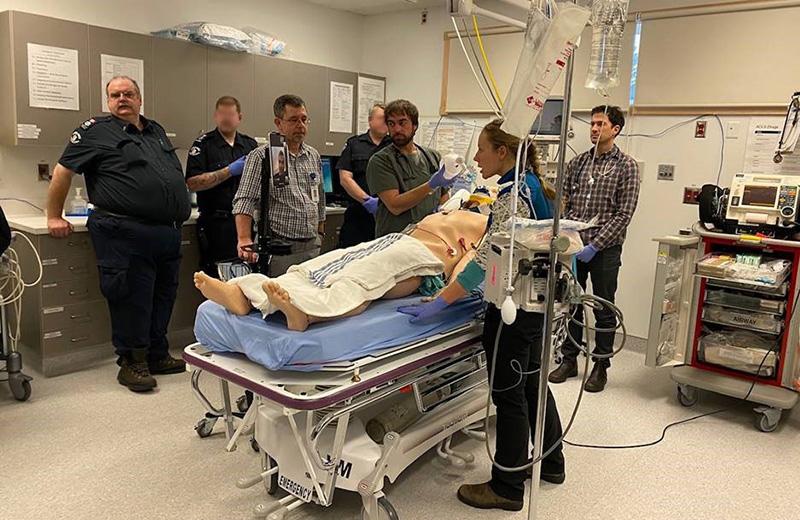It’s helpful for health care professionals to get hands-on experience practicing as a team. A special type of training called “clinical simulation” lets them practice new skills without risk to patients, using realistic mannequins known as “simulators.”
“This pilot project enables rural health care professionals to receive on site educational opportunities allowing them to practice as a full team in their environment,” says Michael Lundin, Regional Manager Clinical Simulation Education. “Our simulator technology and rural delivery align with the national interprofessional competency framework to support focused team practice.”
Since 2012, the Northern Clinical Simulation program has supported this style of training in Prince George, Quesnel, Terrace, and Fort St. John with a staff of two technicians. This pilot project looks to support the expansion of simulation support to many sites across the North. The program uses life-sized, anatomically correct mannequins to provide realistic training for health care professionals. The simulators, which can breathe, speak, and bleed, provide practice in dealing with births, hemorrhages, broken limbs, heart attacks, and more.
“Clinical Simulation team practice is an effective model to support health care professions towards the improvement of patient outcomes and patient safety,” says Michael, who is also the Chair of the BC Simulation Network.
Northern Clinical Simulation is a partnership between Northern Health, the Northern Medical Program, and the University of Northern BC’s School of Nursing. It was developed to provide high-quality hands-on training to Northern communities. However, demand on simulation is increasing in rural hospitals and health care centres.
A recent visit by Michael Lundin and Dr. Mathew Wahab to Valemount was well received, and was an important step in expanding this education in the North.
“It was exactly the same feelings of a real-life emergency, except there’s a safety net to support and learn from,” said Dr. Stefan Du Toit of the Valemount Health Centre.
“With each visit to Valemount, I’ve seen team growth around communication, collaborative leadership, and patient-centred care,” says Michael.
Each trip is a step closer to bringing the hands-on education needed to provide excellent care for our Northern communities.
Questions? Visit the Clinical Simulation webpage.
In recent years, significant support from the Spirit of the North Healthcare Foundation and its donors has allowed the program to buy newborn and one-year-old simulators that resemble real infants. This has made it possible for health care professionals to safely practice providing care to this age group. However, more help is needed: Donate today.














Comments